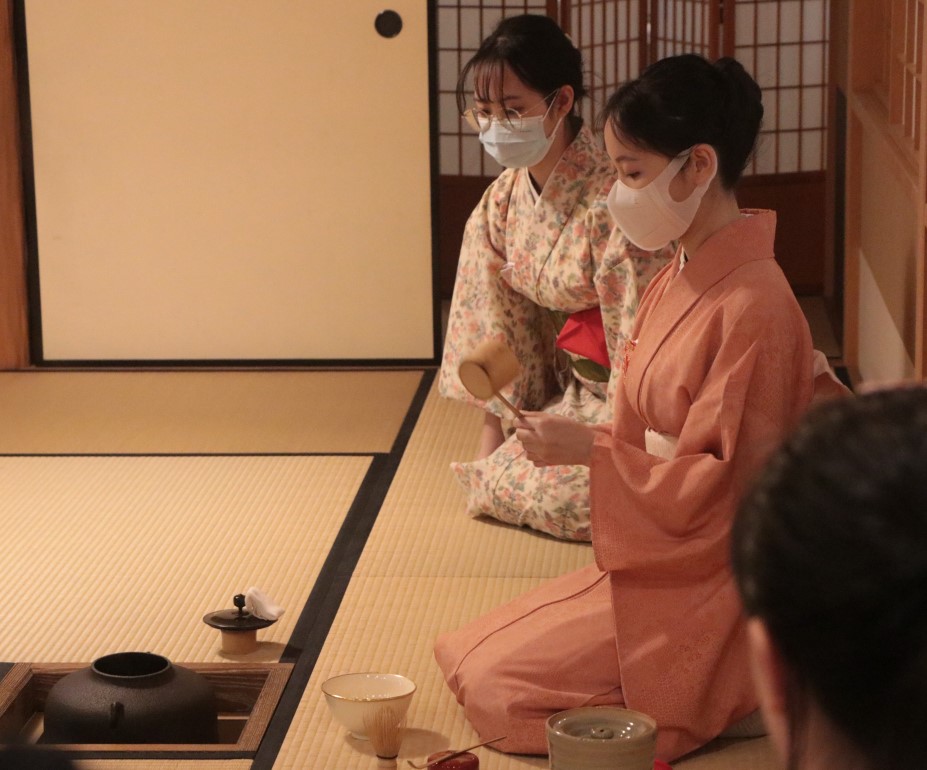The Spiritual Essence of Japanese Tea Ceremony: A Deep Dive
Discover the deep spiritual essence of the Japanese tea ceremony. Learn about the four key principles—harmony, respect, purity, and tranquility—that make this ancient tradition more than just a tea ritual.
GLOBAL TEA CULTURE


What’s the Japanese Tea Ceremony All About?
At its core, the Japanese tea ceremony revolves around four key elements: harmony, respect, purity, and tranquility. These principles aren’t just rules; they shape the way people experience life and connect with others. Let’s break it down and see what each of these elements really means.
1. Harmony: The Power of Balance
In the Japanese tea ceremony, "harmony" isn’t just about sipping tea with friends; it’s about achieving balance in everything you do. From the delicate movement of preparing the tea to the peaceful atmosphere in the tea room, everything works together to create a sense of balance. There are two main aspects to this:
Gentleness: When you prepare the tea, the motions should be calm, graceful, and gentle. There’s no rush. You allow yourself to feel the process – the fragrance of the tea, the warmth of the cup, the sound of the water boiling. This is about feeling at peace in the moment.
Mental Balance: It’s also about calmness in your mind. The space should be free of distractions, a place where you can be fully present. The idea is to create an environment that allows you to connect with others and nature, harmonizing your thoughts and emotions with your surroundings.
2. Respect: Deep Respect for Nature and People
The word “respect” in Japanese tea ceremony goes far beyond polite gestures. It’s about recognizing your connection with nature and the people around you. Here's how it plays out:
Respect for Nature: Tea ceremonies aren’t just about drinking tea. They’re an appreciation of the natural world. Every element of the ceremony – from the water you use to the bowl and even the room itself – is treated with utmost respect. It’s a celebration of the natural beauty around you.
Respect for People: When you’re participating in a tea ceremony, you’re not just sipping tea, you’re becoming one with the tea itself. The goal is to achieve a sense of spiritual connection where your body and soul flow with the tea. In this moment, you're not just an observer, you’re part of something greater.
3. Purity: Cleanliness of Body and Soul
Purity is more than just having a clean tea set. It’s a deeper concept that touches on cleanliness of both the physical space and your mind. Here’s how purity shows up in a tea ceremony:
Clean Environment: Tea rooms are pristine. Every item, from the teacups to the utensils, is carefully cleaned and placed with purpose. There’s no room for anything that might disrupt the serene atmosphere.
Mental Clarity: The ceremony is a moment to clear your mind, to wash away any negativity or distractions. It’s a time to focus, not just on the tea, but on your inner self, letting go of the clutter in your thoughts.
To enhance the experience of a traditional tea ceremony, many enthusiasts choose a Yixing Zisha teapot. Known for its unique clay, this teapot allows the tea to breathe, enriching the flavors and adding depth to the ceremony’s tranquil atmosphere.
4. Tranquility: The Silent Peace of the Moment
Tranquility is at the very heart of the tea ceremony. This is the element that truly sets the Japanese tea ceremony apart from anything else. But why?
Silence is Key: It’s not just about drinking tea in silence. It’s about quieting your mind. The tea room is a peaceful haven, away from the noise of everyday life. There’s a deep sense of calm that pervades the ceremony, where everything else fades into the background.
Peaceful Reflection: As you sip your tea, you're invited into a meditative state, where you can reflect, let go, and just be. This sense of tranquility is not just about the surroundings but also about finding peace within yourself.
Wrapping It Up
So, why is the Japanese tea ceremony so much more than just drinking tea? It’s because of these four principles: harmony, respect, purity, and tranquility. These aren’t just actions – they’re ways of living, ways of connecting with the world and people around you. It’s about slowing down, being mindful, and finding peace in the simplest of moments.
FAQs
Q: Can I practice tea ceremony at home?
A: Absolutely! You don’t need a formal tea room. You can create a simple, peaceful space and focus on the principles of harmony, respect, purity, and tranquility. It’s about the experience, not the setting.
Q: Do I need to be spiritual to enjoy the tea ceremony?
A: Not at all. While the ceremony has spiritual roots, you don’t need to be religious to enjoy it. It’s about slowing down and being present in the moment.
Q: Can I invite friends to join me in a tea ceremony?
A: Yes! In fact, the tea ceremony is all about shared moments. It’s an ideal way to connect with others, as long as you maintain the focus on mindfulness and respect.
Have you ever wondered why the Japanese tea ceremony is so much more than just brewing and drinking tea? It's about peace, mindfulness, and connection. It’s the perfect blend of culture, nature, and human spirit. People often think tea ceremonies are just about sipping tea, but there's a deep, spiritual philosophy behind every gesture, every motion, every word. If you’re intrigued, let's explore the heart of Japanese tea ceremony and its four main principles that make it an unforgettable experience.
